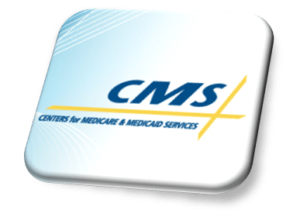 The Centers for Medicare and Medicaid Services (CMS) may have a long history of reimbursing healthcare providers in the traditional fee-for-service method, but that doesn’t mean it intends to stay that way. Indeed, increasingly the agency has been moving away from tradition and toward value-based, bundled provider payments.
The Centers for Medicare and Medicaid Services (CMS) may have a long history of reimbursing healthcare providers in the traditional fee-for-service method, but that doesn’t mean it intends to stay that way. Indeed, increasingly the agency has been moving away from tradition and toward value-based, bundled provider payments.
Cardiac care is no exception.
Late last month CMS released a final rule that outlined a triad of new payment programs for cardiac care. Effective from July 1, 2017 through December 31, 2021, the Cardiac Care Model will mandate participation by every hospital within nearly 100 metropolitan statistical areas (MSAs) that have populations of 50,000 or more and a minimum of 75 cases that are eligible for the acute myocardial infarction (AMI) classification. Participating MSAs will be chosen at random from those that meet the requirements.
Participating hospitals will receive episode-based reimbursements for bypass surgeries and heart attack care; the facilities will be held fiscally responsible for any and all medical care for those cases beginning with patient admission and ending 90 days after discharge.
The CMS’s final rule also addresses the Cardiac Rehabilitation Incentive Payment Model, a means for examining whether or not payment incentives are able to boost the reliance on cardiac rehabilitative services in general. Slated to be implemented in nearly 50 areas across the country, this model will grant hospitals payments when they utilize services geared for cardiac rehabilitation.
In addition to cardiac care, joint replacement and ACO Track 1+ offer AAPM incentives
The Medicare Access and CHIP Reauthorization Act of 2015 (MACRA) offers physicians a 5% bonus when working with participating Advanced Alternative Payment Model (AAPM) facilities. The alternative cardiac models qualify as AAPMs under MACRA, but they are not the only ones.
The final CMS rule issued last month contained further announcements regarding other qualifying alternative models, including the expansion of the Comprehensive Care for Joint Replacement Model (CJR), which now includes femur and hip fractures treated surgically. The CJR will now also test bundled, quality-based payments in the area of knee and hip replacements.
Another announcement within the final rule was the Medicare ACO (Accountable Care Organization) Track 1+ Model, set to commence in 2018. This is intended to put a certain payment model to the test, specifically, a structure¬ that involves less risk than the models in Tracks 2 or 3 of Medicare’s Shared Savings Program (MSSP). CMS’s goal? To pave the way for smaller practices in particular to shift to performance-based risk.
The final rule notes that the ACO Track 1+ Model will include and absorb these characteristics of MSSP’s Track 3: the ability to decide about which thresholds will be relegated for sharing of savings or losses; the assignment of beneficiaries (which would permit ACOs to gain advance notice of the patient population for which they will be responsible); and the choice to use the Skilled Nursing Facility 3-Day Rule Waiver (which can grant the ACO a wider measure of flexibility).
All of the above models will be overseen by the CMS Innovation Center, an agency given its authority via the Affordable Care Act.
For more information/questions regarding any legal matters, please email [email protected] or call 310.203.2800.